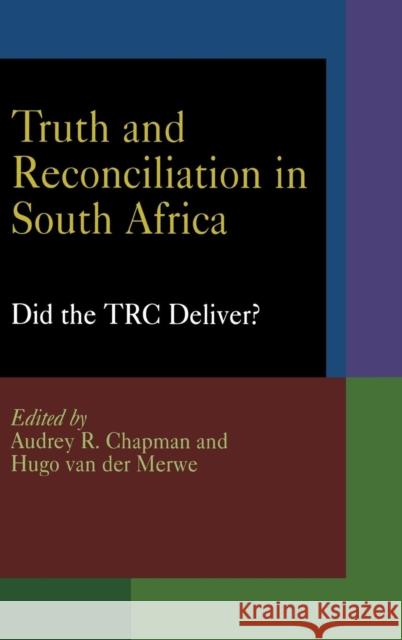Truth and Reconciliation in South Africa: Did the TRC Deliver? » książka
Truth and Reconciliation in South Africa: Did the TRC Deliver?
ISBN-13: 9780812240597 / Angielski / Twarda / 2008 / 360 str.
As nations throughout the world emerge from periods of human rights abuses, systematic oppression, and collective violence, truth commissions have become indispensable to political transition. Such commissions are established as temporary bodies to investigate human rights violations and patterns of violence that occurred over a specified period of time. Their goal is to document conflict--to recover the truth--as a first step toward healing.Of the truth commissions to date, the South African Truth and Reconciliation Commission (TRC) has most effectively captured public attention throughout the world and provided the model for succeeding bodies. Although other truth commissions had preceded its establishment, the TRC had a far more expansive mandate: to go beyond truth-finding to promote national unity and reconciliation, to facilitate the granting of amnesty to those who made full factual disclosure, to restore the human and civil dignity of victims by providing them an opportunity to tell their own stories, and to make recommendations to the president on measures to prevent future human rights violations.Truth and Reconciliation in South Africa provides a comprehensive evaluation of the TRC process and its impact on South African society. Based on a six-year study, the volume draws on an analysis of the victim hearings, amnesty hearings, institutional hearings, public opinion survey data, and extensive interviews with a range of TRC staff, people who worked with the commission, and members of different communities affected by the TRC. Truth and Reconciliation in South Africa raises fundamental questions about the TRC, indeed about all truth commissions, their abilities to realize the mandates assigned to them, and particularly to achieve the difficult balance between truth-finding and reconciliation.











